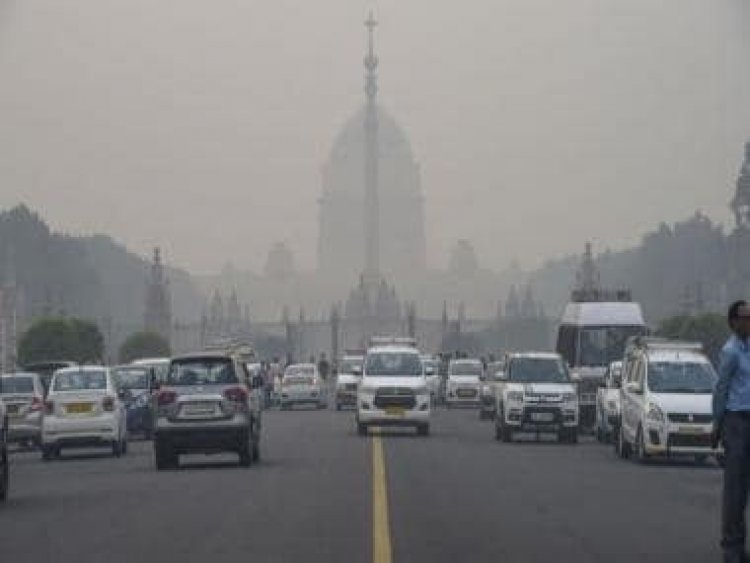Severe air pollution threatens to knock wind out of COVID-19 victims
Severe air pollution threatens to knock wind out of COVID-19 victims

Don’t venture out, use air purifiers, work from home, or else go away from Delhi-NCR: this is the advice doctors are giving to those who have suffered a bout of moderate to severe Covid-19 disease in the last two years.
As the air quality around Delhi-NCR has fallen to the severe category, with the air quality index or AQI shooting up to 600 in parts of the capital, people who suffered moderate or severe Covid are bearing the brunt of the weather much more than healthy individuals.
From fluctuating oxygen saturation (SpO2) to complications in the lungs, uncontrollable bouts of cough, asthma attacks, and even chances of lung failure – these patients are either suffering or are likely to suffer multiple health issues with worsening air quality.
With no relief in sight, patients who had suffered from Covid infection that required steroids, oxygen, and hospitalisation – or those who had prolonged or delayed recovery – should take special care during these days.
According to Dr Ravi Shekhar Jha, director of pulmonology at Fortis Escorts Hospital, Faridabad, “Patients who had Covid in past, if exposed to rising air pollution, can have various health effects depending on the severity of their past Covid infection.”
Jha explained that those who have residual lung fibrosis and are exposed to air pollution have more chances of going into respiratory failure if they get any infection. “Air pollution impairs our lung immunity, and if the lungs are exposed to any infection, pneumonia may get complicated. Also, since post-Covid lungs have a lower reserve, patients can go into respiratory failure earlier than usual,” he warned.
Jha said that it has been seen in clinical practice that Covid infection has unmasked asthma in some patients. “If they are exposed to pollutants, they have a tendency to get asthma attacks.”
A similar trend has been observed by Dr Rajesh Chawla, senior consultant, pulmonology and critical care at Indraprastha Apollo Hospital. “Post Covid, in some patients, a cough variant of asthma has been noticed where patients don’t make a wheezing sound but witness an uncontrollable bout of cough.”
What are the symptoms?
From uncontrolled bouts of cough and weakness to nasal discharge, tightness in the chest, and sometimes a mild fever also: doctors are observing several symptoms triggered by the worsening of air quality.
According to Dr Animesh Arya, head of the department of pulmonology and respiratory medicine at Sri Balaji Action Medical Institute, Delhi, “The former patients of Covid-19 are experiencing complications of the lungs, including difficulty in breathing, shortness of breath, cough, and throat irritation.”
In fact, Dr Chawla said that patients are not responding to usual medicine and are taking much longer to respond. “We need to prescribe stronger medicines such as bronchodilators. Generally, patients get well within 4 to 5 days of taking medicines but right now patients are taking more than a week or almost two weeks to get well.”
What can be done?
Dr Mayank Saxena, senior consultant of pulmonology, Max Super Speciality Hospital, Vaishali, is “seeing cough which is uncontrolled with home treatment or anti-allergic and requiring inhalers and nebulisation ultimately”.
Saxena said that “some patients who had recovered but had signs of lung fibrosis and still have lower baseline SpO2 of 92-94 per cent at normal resting state are showing signs of fluctuations in SpO2 levels to below 90 per cent”.
SpO2, also known as oxygen saturation, is a measurement of how much oxygen our blood is carrying as a percentage of the maximum it could carry. For a healthy individual, the normal SpO2 should be between 96 per cent to 99 per cent.
On a precautionary note, Saxena said, he is advising his patients – who had moderate or severe Covid – to stay indoors, use air purifiers, work from home, or even change the location for the time being.
“Air purifiers have a definite role,” Saxena said while adding that HEPA filters and non-ionising air purifiers in appropriate room sizes could be helpful in improving respiratory symptoms.
Read all the Latest News, Trending News, Cricket News, Bollywood News,
India News and Entertainment News here. Follow us on Facebook, Twitter and Instagram.
What's Your Reaction?



























































